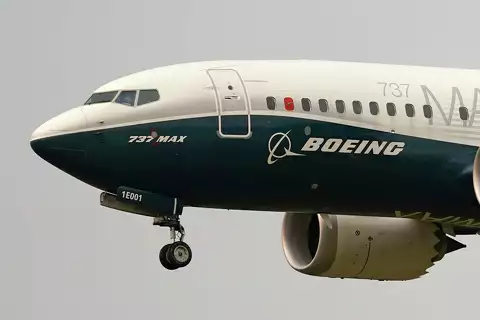Boeing Workers Reject Latest Pay Offer Amid Ongoing Strike
The labor dispute at Boeing has intensified this week as unionized workers, on strike since mid-September, voiced strong dissatisfaction with the company’s latest pay proposal. The International Association of Machinists and Aerospace Workers (IAM), representing over 30,000 Boeing employees, reported that its members overwhelmingly rejected the new offer, deeming it inadequate.
Union Survey Reflects Worker Discontent
In response to Boeing’s recent proposal, the IAM conducted a survey that revealed widespread dissatisfaction among its members. Many workers commented that the offer was lacking, highlighting their discontent with the company’s attempts to resolve the strike. The proposal, which includes a 30% pay increase over four years, failed to meet the workforce’s expectations. “The survey results were crystal clear: members are not interested in this offer,” the IAM stated.
Boeing’s “Final Offer” Falls Flat
On Monday, Boeing presented what it termed its “best and final” offer, which included a one-time signing bonus of $6,000, along with the proposed 30% pay raise, enhanced retirement benefits, and reinstatement of performance bonuses. The company set a deadline for union ratification by Friday, September 27, but this move backfired.
Union leaders accused Boeing of skipping standard negotiation protocols by publicizing the offer directly to the striking workers and the media without consulting union negotiators. “Boeing does not get to decide when or if you vote,” IAM leaders emphasized, asserting that no vote would occur by the company’s imposed deadline since Boeing refused to engage in further discussions.
Strikers Demand Better, Boeing Seeks Quick Resolution
Boeing defended its actions, stating that after two days of mediation talks failed, it presented a significantly improved offer. The company also offered to assist with the voting process and extended the deadline. Nevertheless, the union maintained that Boeing’s approach undermined proper negotiations.
The strike began after workers rejected a previous 25% pay raise. The new 30% offer was meant to address concerns, but it fell short of the union’s demand for a 40% increase over three years. In an effort to cut costs during the strike, Boeing began furloughing non-union employees, highlighting its eagerness to resolve the dispute.
Financial Strain on Both Sides
The ongoing strike has significantly impacted Boeing, halting production of its popular aircraft, including the 737 Max and 777. While work on the 787 model continues at a non-union plant in South Carolina, the company is experiencing financial pressure. To mitigate losses, Boeing has implemented cost-saving measures such as furloughs for thousands of managers and freezing hiring, alongside cuts to business travel and supplier spending.
On the other hand, striking workers are feeling the pinch, too. With their final paychecks issued last week, many are facing financial strain, especially as their health insurance benefits are set to expire soon.
Key Issues: Pay and Pensions
Boeing’s latest offer includes an upfront pay raise of 12%, followed by three annual increases of 6%. While this would bring average annual pay from $75,608 to $111,155 by the end of the contract, the absence of a traditional pension plan remains a critical issue. Workers cited pensions and wages as the primary reasons for their overwhelming rejection of the earlier proposal.
Although Boeing renewed its commitment to building new aircraft in the Seattle area, a key point for union leaders, many workers remain unconvinced that the offer adequately addresses their concerns.
The IAM continues to call for a fair agreement, emphasizing that Boeing’s proposal does not meet the needs of its members. As the strike drags on, Boeing faces increasing financial losses. The halt in production is affecting the company’s cash flow, prompting drastic measures, including furloughs and spending cuts.


Comments are closed.